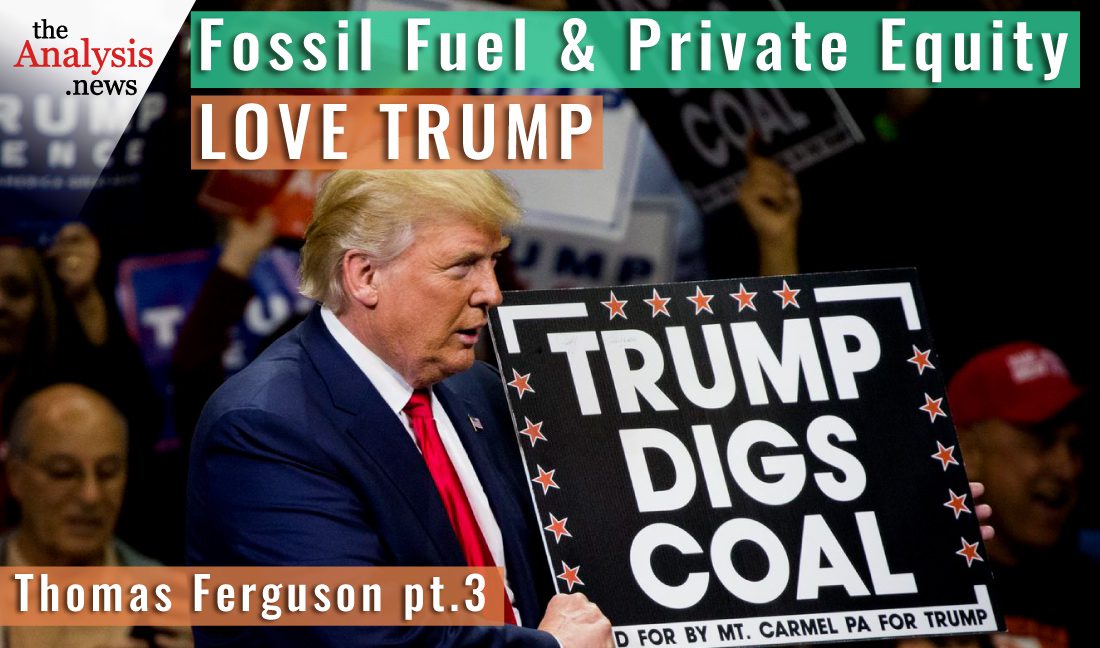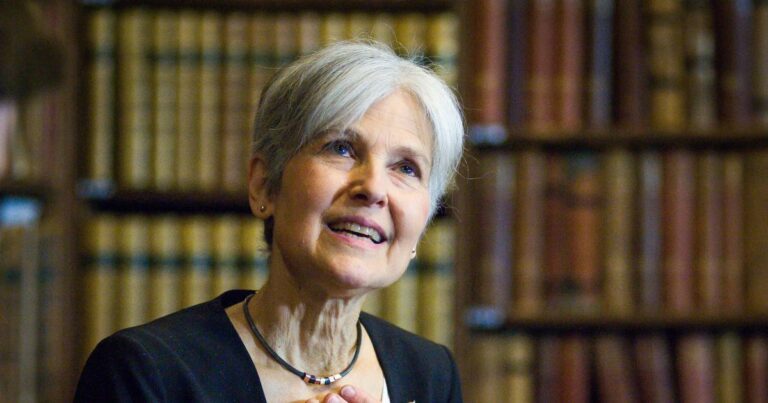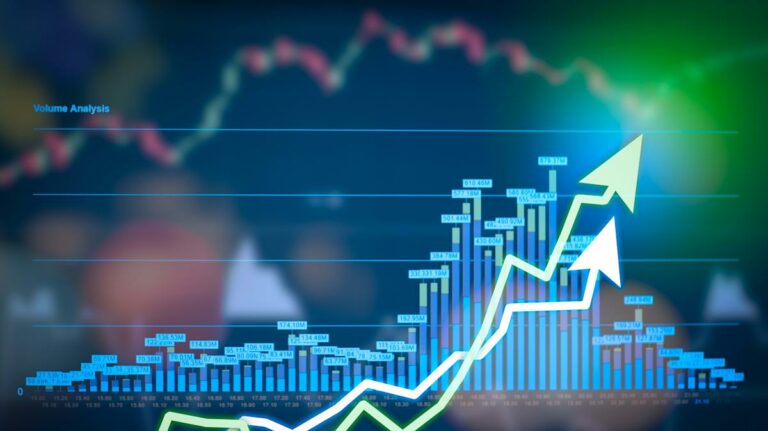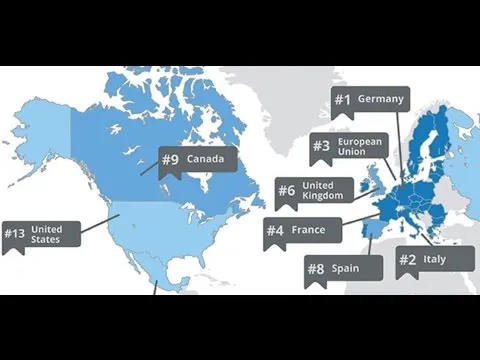Big oil, coal and parasitical private equity corps highly favored Trump and the GOP in 2020 – and likely will again. Thomas Ferguson joins Paul Jay on theAnalysis.news.
Link to the article – https://www.ineteconomics.org/research/research-papers/the-knife-edge-election-of-2020-american-politics-between-washington-kabul-and-weimar
TRANSCRIPT:
Paul Jay
Hi, I’m Paul Jay. Welcome to theAnalysis.news. Please don’t forget our year-end fundraising campaign. What does that campaign mean? Me asking for you to donate money at the end of the year. As you look at your tax situations, we are a 501 C3 in the U.S., and if you’re not in the U.S., well, I guess just do it because you like what we do. Be back in a few seconds with Tom Ferguson. We’re going to talk further about the perfect storm gathering in the 2022 and 2024 elections.
So I’m continuing my discussion with Tom Ferguson about the study he’s done on the 2020 elections and what that tells us about 2022. Thank you for joining us again, Tom.
Thomas Ferguson
Oh, I’m glad to still be here, Paul.
Paul Jay
Just one more time. Tom is a Professor Emeritus at the University of Massachusetts, Boston, Director of Research at the Institute of New Economic Thinking, and a Senior Fellow at Better Markets.
So in your paper, you’ve done a breakdown that a very disproportionate amount of money of fossil fuel and private equity went to [Donald] Trump, and especially to the whole Republican Party, not just to Trump. There was a concerted effort to make sure the Republicans were very successful at all the down-ballot races. Is there some kind of split in the financial sector? You have people like Wall Street, I’m sorry, like BlackRock on Wall Street, making a lot of noise about climate change, but how serious is this block of money that’s going to actually try to stop any real policy being passed?
Thomas Ferguson
Let’s begin with my usual disclaimer that I wrote with two co-authors who are really brilliant: Paul Jorgensen and Jei Chen. In that respect, it’s our research. In the paper, which is on the INET website, you can get it there. We are talking specifically about the presidential breakdown in there. I don’t doubt you’re right on the congressional money there, but our figures— now we were interested in the fossil fuel folks, if you like, because of the earlier part of the paper on agriculture, where we found that the farming support for Trump was really huge. It eventually dawned on us that not only do the large family farms that now dominate American farming, totally dominate, I would add, those folks really don’t like being regulated on water, except for a few folks doing organic farming, of whom there are not large numbers. Most food in the United States isn’t organic, just go to a supermarket and find out yourself. Therein the old George Bush fashion, if you remember that first bout of inflation.
The farm people are out there natural opponents, and they also don’t like labor unions. We were struck by the pattern of how money streams from urban areas to be spent out in the peripheral parts of the States if you like, and we were trying to document that pattern.
Now, when we looked at, and a pretty obvious link, a pretty obvious way to think about this was okay, who’s got the huge instinct in keeping Trump around? And fossil fuels came right to mind. And so we looked at oil, coal, and then we looked at private equity. Now, the private equity story is an extreme free-market one. Now, what we found there was pretty interesting and somewhat different from previous years.
In 2016, we’d actually done this study: the three of us. Private equity was the only big part of the financial sector that really had major support for Trump before the election, and they liked Trump at the start, and we documented that. It’s fun to watch
Paul Jay
Tom, for people who aren’t following this as closely as you do, how do you differentiate private equity from other parts of the financial sector?
Thomas Ferguson
These folks basically buy and sell companies and run them themselves. They try to take advantage of the difference that results when you’re restructuring. I’ll put it that way. It’s not just buying some paper assets, shuffling them around, and buying foreign exchange. Though, they all do that. And in practice, the links between private equity and, say, hedge funds are often sometimes difficult to tell. But these folks do a lot of active management, which gives them—
Paul Jay
So does that mean they’re more directly connected to trying to make sure wages are as low as possible and such?
Thomas Ferguson
Yes, a point we’ve made over and over. Yeah, exactly that, and also anything else that stops you from doing exactly what you want, like regulations with your firm, whatever it is. If you want to go throw out the garden, you can throw out the garden instead of all the water supply or whatever. Not that anybody would. They just want to be able to do it. These are the most extreme laissez-faire people going. They also buy hospitals, for example, a separate problem, not one we’re going to deal with.
Anyway, so this time, we spent a lot of time trying to figure out what was going on in private equity; with the data set, we just sort of set out the results in the paper. And what we find there is that the smaller private equity folks act like ordinary finance in general, which doesn’t particularly show heavily for Trump. I mean, there was something of a turn away from him in 2020 on that. I think COVID probably played a role in that because the Trump policies were so crazy. We also showed they disgusted a lot of science and technology workers by inference because, in the areas where they are, there’s a big loss in votes there.
But the big private equity players, the folks in the Forbes 400 who are in private firms, which the size of that, we use the top Fortune 350, these are usually privately held, not publicly held, but they’re the same size. Those folks were overwhelmingly for Trump, and that is just an amazing finding because these folks are probably, apart from some pockets of Silicon Valley, probably the richest, fastest-growing at rates of richness in the United States. And for that matter, maybe in the world. And so that’s a real warning that if you like the express train of history may not be running in quite the way you were all thinking when you talk about green finance.
Now the other thing we sort of did on that was we spent some time looking at oil companies, which I’ve done for years. I taught at the University of Texas, and I knew and know people in that industry. And you could see that all this talk about green finance, I should say that, I and probably my colleagues over here; it’s not in the paper. I’m quite unhappy with lots of talk of green finance because when you study that, it turns out to mean, let’s let Goldman Sachs and everybody else do their usual markup on some kind of a bond. My take is you could get the same effect, much more simply. You could simply tell banks if you want to be in business, you better make some green loans, and then you need a good criterion for green loans. We know that greenwashing has heavily hit both the European Union and a lot of private talk about this all over the world. We’ll put that to one side.
Anyway, here’s the point where we go; what you got is, for sure, investors who now they’ve bought slots on the Exxon board, and they’ve pushed the large oil companies to diversify out from some of their oil fields. They’ve pushed a more rapid transition to a non-fossil fuel future. Now, what is happening is that when you study that process, those oil fields are being bought sometimes by private equity-backed folks but certainly by a lot of middle-level oil companies.
Now, middle-level oil companies would be, by anything except the oil industry standards, gigantic businesses. They’re really large. And so what you get is this kind of shuffle between, all right, so the large firms diversify out of this and then the medium-sized folks, the private equity folks, are picking up these legacy fields. If you think like I think, and like they think, or my colleagues think, we know perfectly well; didn’t you spend political money to block things and those legacy assets? They’ll actually tell you, and you can read it in the newspapers. Those legacy aspects that everybody is sort of thinking are on their way out; they can run those things for years at a big profit, and there’s a lively trade in that.
So the notion that there is a clear financial constituency, but also in those legacy industries, coal and oil, they just hang on and use that stuff. And what we show you is those folks are overwhelmingly Republicans.
Now everybody knows Nancy MacLean’s book on the Kochs; that’s all true. Though, she comes in for all kinds of ridiculous criticism, most recently from the Wall Street Journal. And this stuff isn’t going away. So you’ve got this gigantic block of legacy fossil fuel folks sitting there, and it doesn’t take a brain to realize, gee, funny, they look like they’re in the West Virginia Democratic Party.
Paul Jay
I was just about to say, as Joe Manchin’s part of this. It’s not just the Republicans.
Thomas Ferguson
That’s right. I have spent years working on oil. I have had Democratic oil men give me their private papers.
Paul Jay
So, there’s a section of capital, private equity, big and small fossil fuel, coal, especially, but not just. But there’s a section of capital, and maybe the most visible is BlackRock, which is one of the goliaths on Wall Street. But it actually does seem more aligned with the Democratic Party. Certainly, they’ve got one of their guys who is now one of the Senior Advisors to [Joe] Biden. Larry Fink, the CEO of BlackRock, has traditionally been more aligned with the Democrats. Although I have to say, there’s a great quote from Larry Fink that says, in spite of everything I think of Trump, he did check off every single thing on our bucket list. But there does seem to be a division between some sections of Wall Street that see a more systemic problem that actually, at least at some level, needs to be addressed. Especially climate. And a section that doesn’t give a shit.
Thomas Ferguson
This isn’t in the paper, but I’m willing to just stick my neck out here. I’ve looked around on this a bit. If you look at the sort of upper-class voters, they’ve got a different ranking of how important climate change is from most voters who are much closer to the yellow vests in France. They just said, what are you talking about? We’re trying to live through the end of the month, not the next decade or something like that. You get the occasional Jeff Bezos or somebody who’s talking, or Peter Thiel, who’s talking about Mars or some other place. But most people don’t think they’re going anywhere.
And a large chunk of Silicon Valley is overhung with wildfire smoke now, for reliably, some months of every year. And so it’s not very surprising that the problem of climate— I mean, I actually, Joel Rogers and I had an old book on the Democrats. When did that come out? In ’86? Where we just sort of say, hey, look, there’s a lot of folks out there who are pretty affluent who actually get threatened by, well, we didn’t use the term climate change, but it was precisely the same sort of heavy pollution, not to mention nuclear reactors, just 40 or 50 miles from the New York Times downtown office up there. So it’s not surprising there’s a very affluent constituency that will rank that very high. I don’t find that suspicious or weird at all. That’s exactly what I think probably should be happening.
Now, the problem is that nearly every way you do this on climate change has very important re-distributional implications. Bluntly, the rich can afford a Tesla. The rest of us cannot. And yes, we can hope that the Biden program to bring down the cost of electric batteries works and succeeds, but the transition is going to be bumpy. It’s going to be bumpy in Europe and a lot of other places, too.
So I myself think that if you’re asking me, which I guess you are, this business of political money and exploiting problems and costs is going to be with us for a very long time. It’s going to lead to a real mess. It’s already immobilized French politics. I think you can see that. It’s a factor in German politics. In Austria, the Greens, which are pathetic to begin with, in the terms, they have just weak policies in that coalition there. They’re not popular in the rest of the country.
Paul Jay
Right. Tom, there is an editorial in the Washington Post a few months before the 2020 election, and I thought it was very interesting, and it didn’t get much attention, I don’t think. It said the wedge issue, the big issue the Democrats, Biden could win on, would be climate. That the climate-denying of Trump is an issue that could actually win over some Republicans. And I looked just a few weeks ago; I looked at a Pew [Pew Research Center] study breaking down attitudes in the Republican Party on climate and of people who identify as— what’s the word? Extreme conservative or very conservative. Ten percent considered climate in their top three issues, and 27% said they were greatly concerned.
In Virginia and other places, if the Democrats, it seems to me, in close swing-States had really front and center hammered the climate change issue, they could have picked up a percentage of those Republicans who really do care about climate, it might have been enough. But they don’t do it because I guess they’re afraid of the fossil fuel industry.
Thomas Ferguson
Well, yeah. I also think that probably some of those identifying climate are extreme Conservatives, and they are extremely rich. They may have other interests that would forever block them from— every business organization in the United States of any size has rejected the original modest Biden tax program that was basically a minor hike on income taxes. Now we’re looking around for all these substitutes to try to neutralize the impact of what’s a pretty modest spending over 10 years.
But, yeah, the original genius of the Green New Deal was precisely that it fixed jobs and redistribution right in the climate change. But when the Democratic leadership rejected that, which it did, I thought that was going to be trouble. And I’m sorry to say that not particularly insightful observation is turning out to be true. The job story is really, really important. The Biden folks have done the best they could, and that wasn’t much to begin with, and it’s less now. They got a serious long-term problem here.
Paul Jay
I’ve talked about this a lot on the air. One of the things that they could have done is this issue of a serious just transition—for example, really offering fossil fuel workers wage subsidies so as they transition out of the fossil fuel industry, they don’t lose a dime. And my understanding is that it wouldn’t actually cost very much for the Feds to do that, but they don’t go front and center on this just transition. In West Virginia, if they wanted a weakened Joe Manchin, that’s what they’d be campaigning on, but they don’t.
Thomas Ferguson
Yeah, there’s the old James Baker and George Shultz proposal to do a tax on carbon that is then recycled right back into people’s pockets. So it would be— I’m not big on carbon taxes because the evidence on that, Michael Grubb has a good summary from INET; it’s that there’s not a lot of substitution from that, even in buildings where you’d think there should be. The corporate Democratic leadership that controls Congress and dominates the White House is almost brain dead on these issues, and they’re not even trying.
And they got a problem. It could be that they can choke on their corporate money, if you like, a King Midas disease could hit the Democrats in the end, which is a way of rephrasing what he just said to me. King Midas disease of a very odd kind.
Paul Jay
The quote I read off from your paper, you and your colleagues’ paper, and when I started my intro in part one, you ended with saying a putsch is not out of the question again, essentially. And these sections of capital you’re talking about, the private equity funds, fossil fuel, and not only them who said that they weren’t going to fund those politicians that were in on January 6. Clearly, they are still funding them, and these Republicans are not afraid of not being funded. What do you see as the danger here?
You ended your paper with this. You could have a similar situation where Trump loses, or the Republicans lose in 2022 or, more likely, maybe 2024, that this happens. And then what? A replay of what happened after this election, except do these sections of capital in this time back a Trump move, assuming he runs?
Thomas Ferguson
Well, I actually think the Republicans are looking at several avenues here. As crazy as this sounds, there is a block of them that think Trump wasn’t radical enough and are talking stuff that you think might well lead to but putsch. But that’s, I think, a very small minority. I think a Trump light approach, as you got in Virginia, might well work. It helped a lot when the Democrats just go around saying we’re not Trump, which the Democratic candidate did exactly that.
But there is also this problem, which is look, if you study what’s been happening in political money in the state level, and we mentioned this at the end of the paper, you can see, Robert Kagan’s basically alluded to it in a piece, that I think that was in the Washington Post. You can see lots of Republicans being flooded with cash for jobs that bear on counting the votes in elections. And somebody is obviously out there trying to get control of vote counting, a sort of creeping January 6th strategy, if you like, of a recount. And there’s a political effort underway in the Republic to get control of that process.
Now you call that a putsch? Well, yeah, maybe. It would be, if you like January 6 without the riot. Just imagine if [Mike] Pence had gone in and said, you know what, I’m going to send this back to the States, as Trump was the State legislature, so they can decide what to do about these electors. That type of thing, I think, is the thing to watch for. It’s a real danger, and I’m, frankly, a little taken aback at how passive the Justice Department under Biden has been on this. I know they’re running investigations on this, but I’m not the only person watching those, including former members of that Justice Department who are looking questioningly at precisely the pace and intensity of those investigations. These folks need to get some results out there, and they need to get them out pretty fast.
Paul Jay
If I understand this correctly, state legislatures and the Republican-controlled States are essentially positioning themselves to be able to create their own list of electoral voters in spite of what the outcome of the election might be.
Thomas Ferguson
Yes or mandate; add restrictions on there. Except it’s not just the legislatures. Often the strategic office is Secretary of State, which runs typically on its own, not usually as part of the ticket, but separately. Nobody put big money into Secretary of State. There were always some because they were important for political turnout. They often decide who can run legitimate canvassing and things like that. I’ve seen that even in the state of Massachusetts, where they were telling some of the affluent towns that they could run voter registration and Lowell and Lawrence people were complaining they couldn’t, or not much of a thing.
But Secretary of State jobs are suddenly getting lots of money coming in. I mean, this is crazy. It should take nobody more than a millisecond to realize what’s going on there, and I don’t know what the Democratic Party’s response to it is. So far, the ostrich, they ought to make it the national bird instead of the eagle under the Democrats here. I can’t figure why—
Paul Jay
I’ve heard from some people that follow some lawyers who are involved in this issue, but you could easily have a situation where a State legislature controlled by the Republicans say we don’t trust the vote count. We don’t think the Dems actually won. So we’re going to pick the Electoral College. And like you say, that’s a form of a putsch.
Thomas Ferguson
It is. It’s the thing to watch rather more than an actual putsch. I mean, the January 6 riot, whatever we want to call it, insurrection, was, if you like, aberrant in that, that was a desperation move at the last second.
Paul Jay
Well, that was the final act of a failed coup. That was not the main act.
Thomas Ferguson
Right, it wasn’t supposed to be like that. It was instead exactly what they tried to put over on Pence, which didn’t happen.
Paul Jay
Okay, I know you got to run because you gave me a hard deadline here, so we’re going to do another segment, and we’re going to dig into some of the other really important issues raised in your paper.
Thomas Ferguson
We got to talk farms, trade, and the economics of this.
Paul Jay
That’s what’s coming. We’ll do that. Actually, we’ll do agriculture in the next segment because that’s really fascinating. All right, thanks again, Tom. And thank you for joining us on theAnalysis.news.
Thomas Ferguson
Oh, thanks for having me.
END









